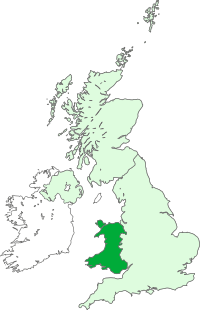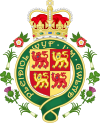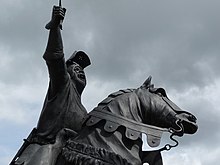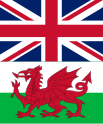Plaid Cymru is a centre-left to left-wing, Welsh nationalist political party in Wales, committed to Welsh independence from the United Kingdom.
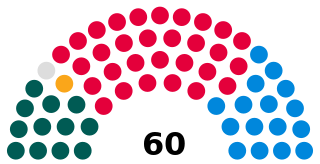
The Senedd, officially known as the Welsh Parliament in English and Senedd Cymru in Welsh, is the devolved, unicameral legislature of Wales. A democratically elected body, it makes laws for Wales, agrees to certain taxes, and scrutinises the Welsh Government. It is a bilingual institution, with both Welsh and English being the official languages of its business. From its creation in May 1999 until May 2020, the Senedd was officially known as the National Assembly for Wales and often simply called the Welsh Assembly.

Adam Robert Price is a Welsh politician who served as Leader of Plaid Cymru from September 2018 to May 2023. He has been the Member of the Senedd (MS) for Carmarthen East and Dinefwr since 2016, having previously been a Member of Parliament (MP) for the same Westminster constituency from 2001 to 2010.
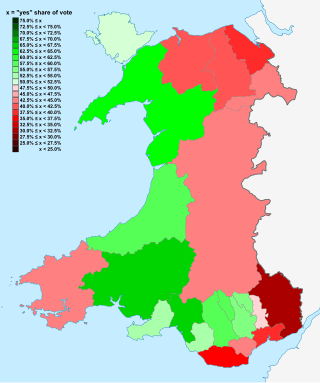
The Welsh devolution referendum of 1997 was a pre-legislative referendum held in Wales on 18 September 1997 over whether there was support for the creation of a National Assembly for Wales, and therefore a degree of self-government. The referendum was a Labour manifesto commitment and was held in their first term after the 1997 election under the provisions of the Referendums Act 1997. This was the second referendum held in Wales over the question of devolution: the first referendum was held in 1979 and was defeated by a large majority.

Welsh nationalism emphasises and celebrates the distinctiveness of Welsh culture and Wales as a nation or country. Welsh nationalism may also include calls for further autonomy or self-determination, which includes Welsh devolution, meaning increased powers for the Senedd, or full Welsh independence.

The Wales Green Party is a semi-autonomous political party within the Green Party of England and Wales (GPEW). It covers Wales, and is the only regional party with semi-autonomous status within the GPEW. The Wales Green Party puts up candidates for council, Senedd, and UK Parliament seats.

Politics in Wales forms a distinctive polity in the wider politics of the United Kingdom, with Wales as one of the four constituent countries of the United Kingdom (UK).
Welsh republicanism or republicanism in Wales is the political ideology that advocates for Wales to be governed by a republican system, as opposed to the monarchy of the United Kingdom.
Welsh Labour, formerly known as the Labour Party in Wales, is an autonomous section of the United Kingdom Labour Party in Wales and the largest party in modern Welsh politics. Welsh Labour and its forebears have won a plurality of the Welsh vote at every UK general election since 1922, every Assembly and Senedd election since 1999, and all elections to the European Parliament in the period 1979–2004 and in 2014. Welsh Labour holds 22 of the 40 Welsh seats in the UK Parliament, 30 of the 60 seats in the Welsh Senedd and 576 of the 1,264 councillors in principal local authorities including overall control of 10 of the 22 principal local authorities.
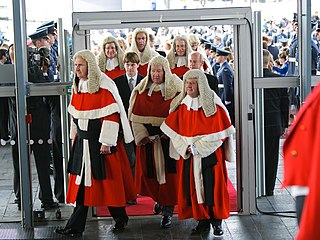
Welsh law is an autonomous part of the English law system composed of legislation made by the Senedd. Wales is part of the legal jurisdiction of England and Wales, one of the three legal jurisdictions of the United Kingdom. However, due to devolution, the law in Wales is increasingly distinct from the law in England, since the Senedd, the devolved parliament of Wales, can legislate on non-reserved matters.

Welsh independence is the political movement advocating for Wales to become a sovereign state, independent from the United Kingdom.

In the United Kingdom, unionism is a political stance favouring the continued unity of England, Scotland, Wales and Northern Ireland as one sovereign state, the United Kingdom of Great Britain and Northern Ireland. Those who support the union are referred to as Unionists. Though not all unionists are nationalists, UK or British unionism is associated with British nationalism, which asserts that the British are a nation and promotes the cultural unity of the Britons, which may include people of English, Scottish, Welsh, Irish, Cornish, Jersey, Manx and Guernsey descent.
Full fiscal autonomy (FFA) – also known as devolution max, devo-max, or fiscal federalism – is a particular form of far-reaching devolution proposed for Scotland and for Wales. The term has come to describe a constitutional arrangement in which instead of receiving a block grant from the UK Exchequer as at present, the Scottish Parliament or the Senedd would receive all taxation levied in Scotland or Wales; it would be responsible for most spending in Scotland or Wales but make payments to the UK government to cover Scotland or Wales's share of the cost of providing certain UK-wide services, largely defence and foreign relations. Scottish/Welsh fiscal autonomy – stopping short of full political independence – is usually promoted by advocates of a federal United Kingdom.

In the United Kingdom, devolution is the Parliament of the United Kingdom's statutory granting of a greater level of self-government to the Scottish Parliament, the Senedd, the Northern Ireland Assembly and the London Assembly and to their associated executive bodies: the Scottish Government, the Welsh Government, the Northern Ireland Executive and in England, the Greater London Authority and combined authorities.

The 2021 Senedd election took place on Thursday 6 May 2021 to elect 60 members to the Senedd. It was the sixth devolved general election since the Senedd was established in 1999. The election was held alongside the Scottish Parliament election, English local elections, London Assembly and mayoral election and the Hartlepool by-election.

Federalism in the United Kingdom aims at constitutional reform to achieve a federal UK or a British federation, where there is a division of legislative powers between two or more levels of government, so that sovereignty is decentralised between a federal government and autonomous governments in a federal system.

Welsh devolution is the transfer of legislative power for self-governance to Wales by the Government of the United Kingdom.

A referendum on Welsh independence from the United Kingdom (UK) has been proposed by pro-independence supporters, including independence campaign group YesCymru, pro-independence political party Plaid Cymru and other groups and individuals. These follow similar calls for a proposed second Scottish independence referendum. Pro-independence party Plaid Cymru has pledged to hold a referendum should they win a majority of seats in the Senedd.
There have been calls for further Welsh devolution, increasing the autonomy for Wales, since the Welsh legislature of the Senedd was founded following the 1997 Welsh devolution referendum.
